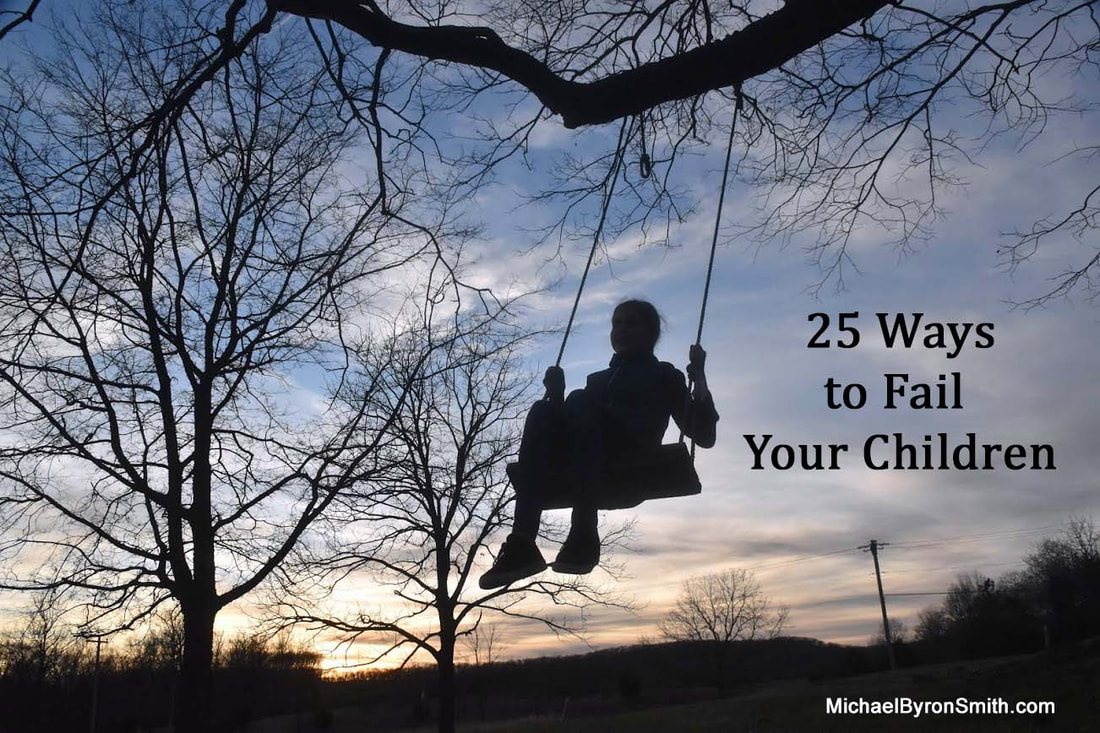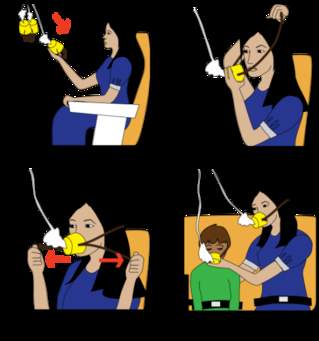 Photo by the author
Photo by the author However, some failures are difficult from which to recover, because the feedback comes much too late - if noticed at all. One failure that concerns me personally, and should concern everyone, is the failure of some parents to raise their children properly, particularly during their early years. See bad advice #23 below.
- The early years, especially the first three years of life, are very important for building the baby's brain. Everything she or he sees, touches, tastes, smells or hears helps to shape the brain for thinking, feeling, moving and learning.
- From birth to age 5, a child's brain develops more than at any other time in life. And early brain development has a lasting impact on a child’s ability to learn and succeed in school and life. The quality of a child’s experiences in the first few years of life – positive or negative – helps shape how their brain develops. (Click on bullets for their references)
But you’re not off the hook when your child reaches kindergarten. There is so much fine-tuning to do. Kids learn more from what you do than what you say. So, with tongue deeply implanted in my cheek, here is advice on how to be a bad parent.
How to be a bad parent
- Ignore who your children spend time with. They know what they’re doing.
- Show them how easy it is to give up on dreams and projects. You know, like you did.
- Be indecisive because something better may come along while you’re chillin’.
- Make excuses for missing their ballgames, plays, dance recitals, etc. That will teach them how to make excuses themselves.
- Dispel and discourage any passions they may have. You don’t want them to fail, do you? Besides, it may cost money to allow them to follow those passions!
- Don’t introduce them to books or travel with them. When they tell you about fairies, princesses, superheroes, or having their super skills, let them know that stuff isn’t real. Those pretend tea-parties are such a bore!
- Assume your kids’ hearing and eyesight are both perfect. They would tell you if it wasn’t. Wouldn’t they?
- Argue with your spouse in front of them. That will teach them proper negotiation skills.
- When your children get frustrated, tell them to just give up. It’s so much easier for them, and especially for you!
- Don’t help them with schoolwork. If they can’t figure it out, your kids will learn to avoid that topic.
- When your kids are afraid of something, keep them from it. Better yet, use those fears against them when they bother you.
- Don’t be fun. Kids have friends for that. Your time is too valuable.
- Change your mind about what they can and cannot do. Change the rules. That will keep them on their toes!
- Don’t let your children look up to successful role models. Don’t they think you’re good enough!
- Feed them fast food. It saves so much time, and your kids will love you more!
- Respect their privacy on the computer and smartphones. It keeps them out of your hair.
- Tell your child they’ll never amount to anything. That will inspire them to do the opposite, right?
- If they are confident, let them know failure is just a stumble away.
- Tell them not to stand out as a good example or to raise their hand in class. Other kids don’t like it when you make them look bad.
- Tell them not to expect too much from life. Disappointment is SO disappointing!
- Don’t restrict their behavior. Being disrespectful or ungrateful shows independence.
- Don’t tell your children you love them. Of course, they know that because you let them do whatever they want to do.
- When they are babies and toddlers, they won’t remember any nice things you did like holding them or reading to them. Save nice things for when they are older so you can get credit.
- Make fun of others. Your kids will think you are clever.
- Never challenge them to be better. Why make things more difficult for them?
SARCASM IS JUST A TOOL FOR WRITING, NOT FOR RAISING CHILDREN.
Summary
Of course, the vast majority of parents do a great job. But possibly, SOME of us may be guilty (maybe without realizing it) of SOME of these 25 pieces of bad advice. Be there, be aware, and be fair!
#powerofdadhood













